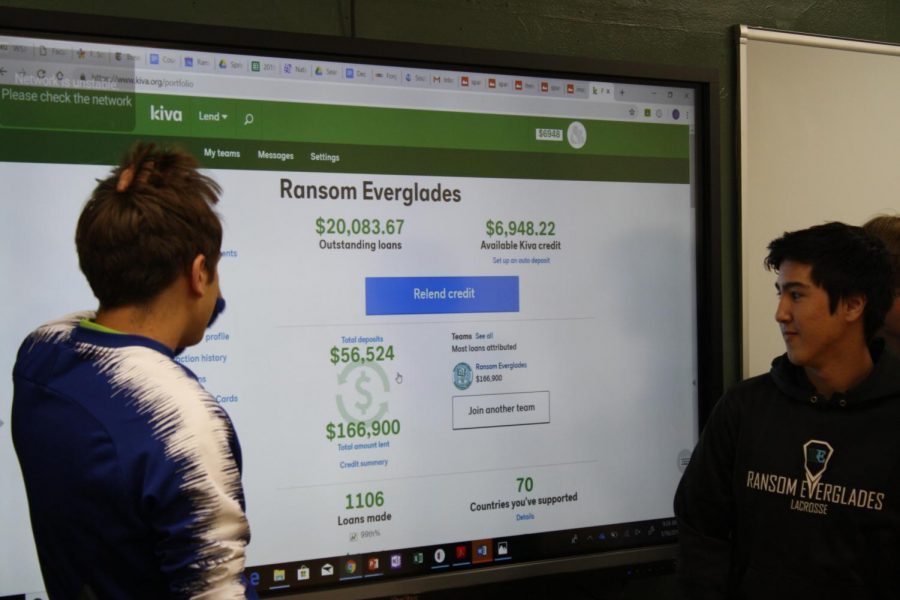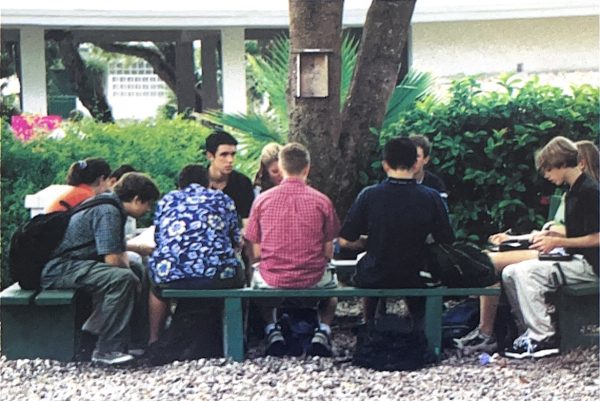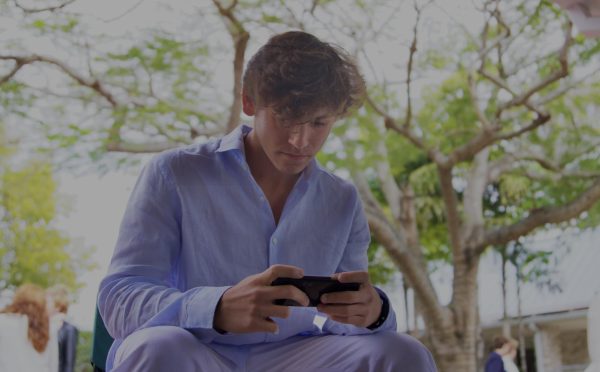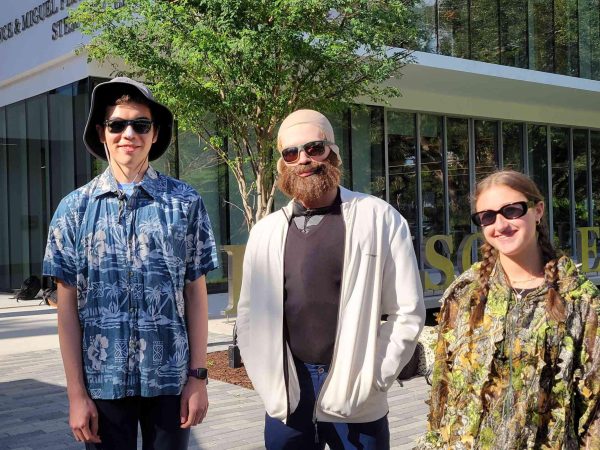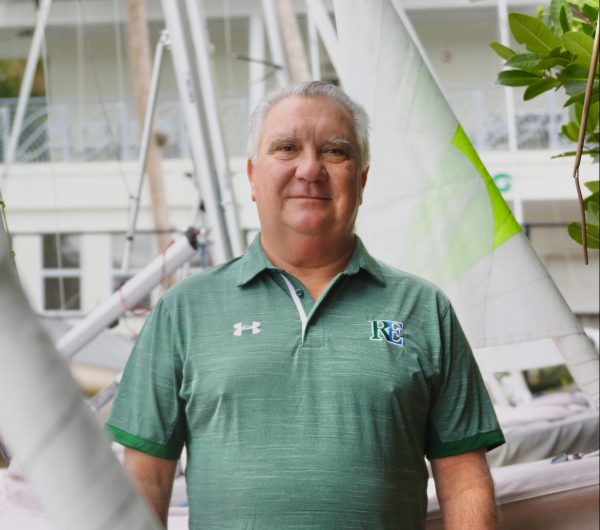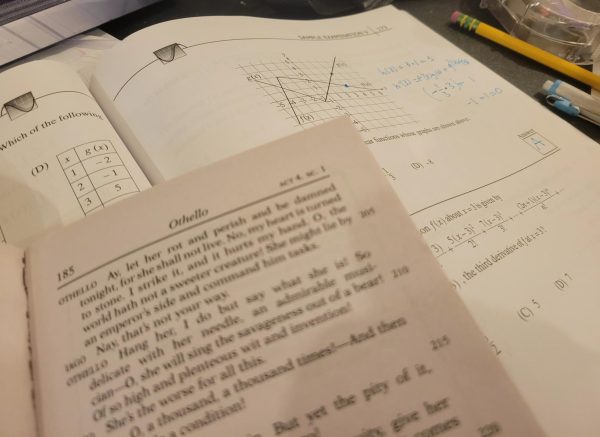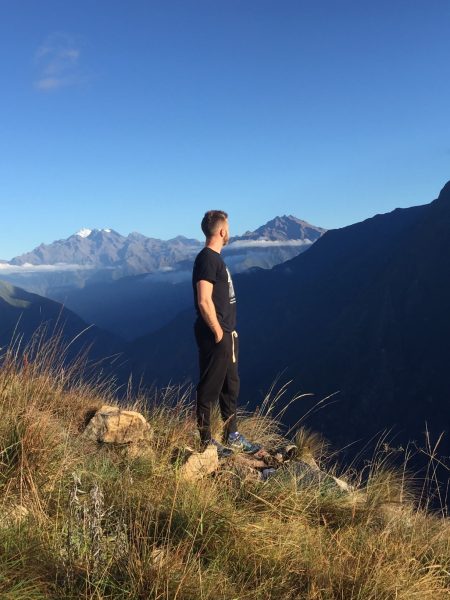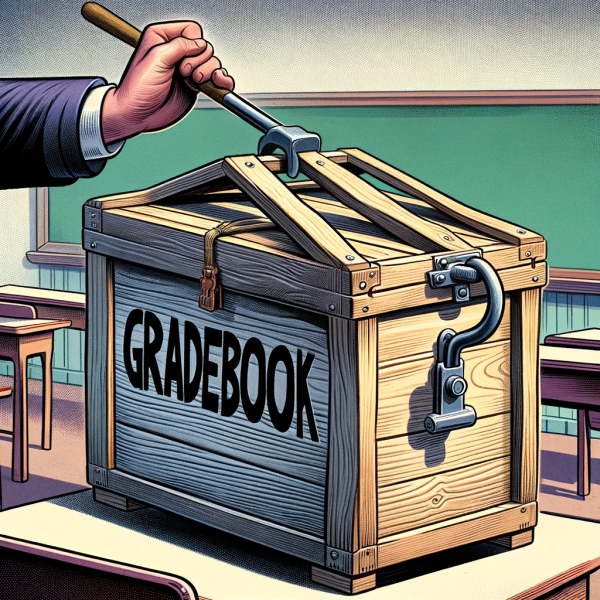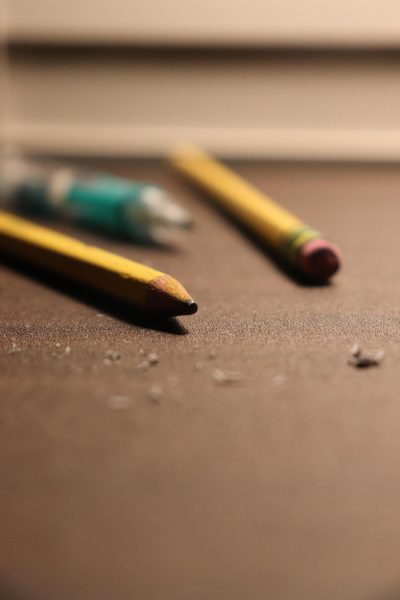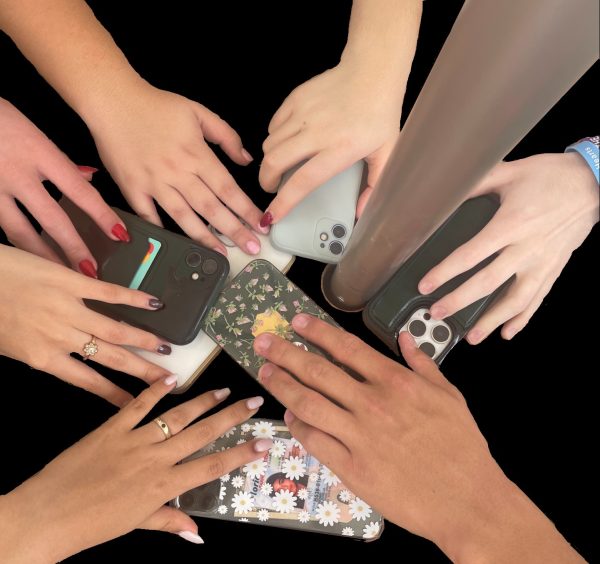Students learn life skills through clubs and activities
Tim Sucher ’20, left, and David Civantos ’20, right, organize a LEAP meeting, where club members analyze financial data to determine how the club’s money could best be lent to those in need of loans.
During one of her first hackathons, in merely four hours, Yuhan Liu ’21 and other Programming Team members designed and created an app that connects lost pets to their owners. Alex Dray ’21 crafted a presentation on the healing power of sand for Speech and Debate. Kareena Rudra ’20 and other Diversity Council members organized a “REal Talks” open forum on Black Lives Matter.
These seemingly disconnected events are all instances of the numerous outside-the-classroom activities that enrich Ransom Everglades students’ lives on a daily basis. The list of student activities and organizations consists of a wide variety of affinity groups, extracurricular activities, service organizations, co-curricular teams, and publications.
Students who participate in these diverse activities report learning valuable skills with real-life applications. For members of the Robotics team, for example, this may be a set of various perspectives and skills to solve problems.
“Designing robots teaches you how to approach problems in different ways, how to realize your mistakes and correct them in time,” Luisa Guarco ’19 said, as she described her creation process. “My highlight is simply getting a design that works well after an endless cycle of building, testing, changing, or rebuilding.”
In Speech and Debate, on the other hand, students gain valuable leadership and public speaking skills.
Ilija Wan-Simm ’19 recounted his three years of being on the team. “I learned so many things: the ability to speak, to be comfortable with myself, to be a leader that I couldn’t have imagined myself becoming,” he said. “I am always at an advantage when speaking on the spot, and I am forever grateful for that.”
Aside from concrete learning experiences, students also improve upon soft skills that serve them on the social level. Through the necessary work of maintaining a club, many students are charged with the responsibility of leading or managing.
“I am totally dependent on my older students,” said Ms. Kate Hamm, coach of the Speech and Debate Team. “There are 93 members, and I couldn’t have possibly managed without them. There are squad captains for each division, and they are the ones who plan the practices, make PowerPoints for lessons, and organize all the activities.”
Sometimes, participating in activities teaches students as simple a skill as teamwork. “Don’t have a superiority complex,” said Jake Quanstrom ’20, reflecting on his time on Academic Team. “Everyone around you is your equal, and you should not be an obstacle for others, especially fellow teammates.”
Teamwork also facilitates the bonding process.
Designing robots teaches you how to approach problems in different ways, and how to realize your mistakes and correct them in time.
— Luisa Guarco '19
“My highlight is just getting together and encouraging each other to study. We are all very close and want each other to succeed,” Jennifer Lin ’20 said, describing her experience on the Math Team. “Whenever there is a very hard problem, we would share our thought process and try solving it together. It feels so rewarding when we finally reach the solution.”
Lin, who also helps to coach the Precalculus Team, said that long-term participation further instills in students the value of mentoring younger students and passing down crucial expertise. “I can often recall how my coaches encouraged and believed in me when I was a freshman, and I want to do the same for the students who show up at my coaching sessions to foster this cycle of learning,” she said.
Anna Mistele ’19, founder of the Programming Team, shared a similar sentiment. “I truly hope the programming team will carry on without me, which is why I strive to lay a good foundation,” she said. “Whatever I can do to help achieve that goal, I do it.”
Ms. Jenny Carson, one of the Assistant Deans for Student Activities, noted that an additional soft skill to take into consideration is the ability to take care of the organization’s financials and keep the entity functioning. With the exception of co-curricular teams, all clubs have to raise funds for their expenses.
“This is part of the organization experience,” Ms. Carson said. “We hope students will take on the fiscal responsibility.”
Depending on levels of involvement and personal experiences, different members of a club often report very distinct takeaways.
Several editors at Inklings demonstrated this phenomenon: Liu found herself becoming a better writer by reading literary works and editing; Phoebe Beber-Frankel ’20 said she had mastered how to edit others’ pieces without taking away their creative voice; and Vivi Davis ’21 said she learned how to judge art and literature in an unbiased way, without considering her relationship to the writer.
Clubs and activities also provide opportunities that are harder to obtain in normal classroom settings. For example, Rudra said that joining clubs serves as a vehicle for students to experiment further with their existing interests.
“I started writing poetry at 10, but I didn’t start sharing until I joined Poetry Club,” she said. Rudra recently presented a new piece during the Poetry Week assembly in April. “My confidence grew so much that I didn’t just perform in school but also open mics outside of school. Poetry Club makes me the poet I am today.”
For others such as Aliya Hollub ’19, an editor of Inklings, extracurricular involvement didn’t just grow her passions, but helped to created them.
“I joined Inklings as a simple hobby,” she said. “But as I got more and more involved, I realized that I have discovered my life passion and I want to work for magazines in the future.”
Students, however, are not the only beneficiaries from this flurry of events; faculty sponsors also expressed how much they benefit from their work with students.
“I learned so much from the students; I didn’t know anything about the LGBTQ communities in the world of superheroes before Megan Houchin’s presentation” Ms. Hamm said.
For Ms. Karen Key, being the Math Team sponsor satisfies her “inner math nerd” for challenging, out-of-the-box problems and allows her to work with students outside of the traditional classroom setting to develop a deeper, more personal relationship with them.
For Dr. Amy Lanning, the advisor to Inklings, the challenge was learning to let the students do all the work. “Inklings should feature student work,” she said. “I love working harmoniously with students as a democratic exercise. I think of my students as equals and try to instill in them a sense of responsibility.”
Despite the overwhelming amounts of positive comments on the value of organizations, Ms. Carson said that there remains the challenge of ensuring that the activities that RE sponsors do, indeed, encourage and promote meaningful involvement.
“We have gotten feedback from the student body that [there is the impression that] some clubs don’t do very much compared to athletics or some other activities,” she said. Rosters populated with few involved students and inexperienced student leaders at the beginning of the year only aggravate the problem.
“When we assess the clubs this year, we try to investigate which ones are actually doing things, and that is why we ask for meeting times, photos, etc.,” Ms. Carson said. “We are also examining the amount of commitments people are making. We want students to think about what they can commit to. A plethora of interests is good, but you only have so much time.”
Ms. Carson said that she and Dr. Corinne Rhyner, the other Assistant Dean for Student Activities, plan to take a fresh look at the student activities program at RE, exploring, among other things, ways of helping students to think about how their extracurricular and academic worlds complement each other.


